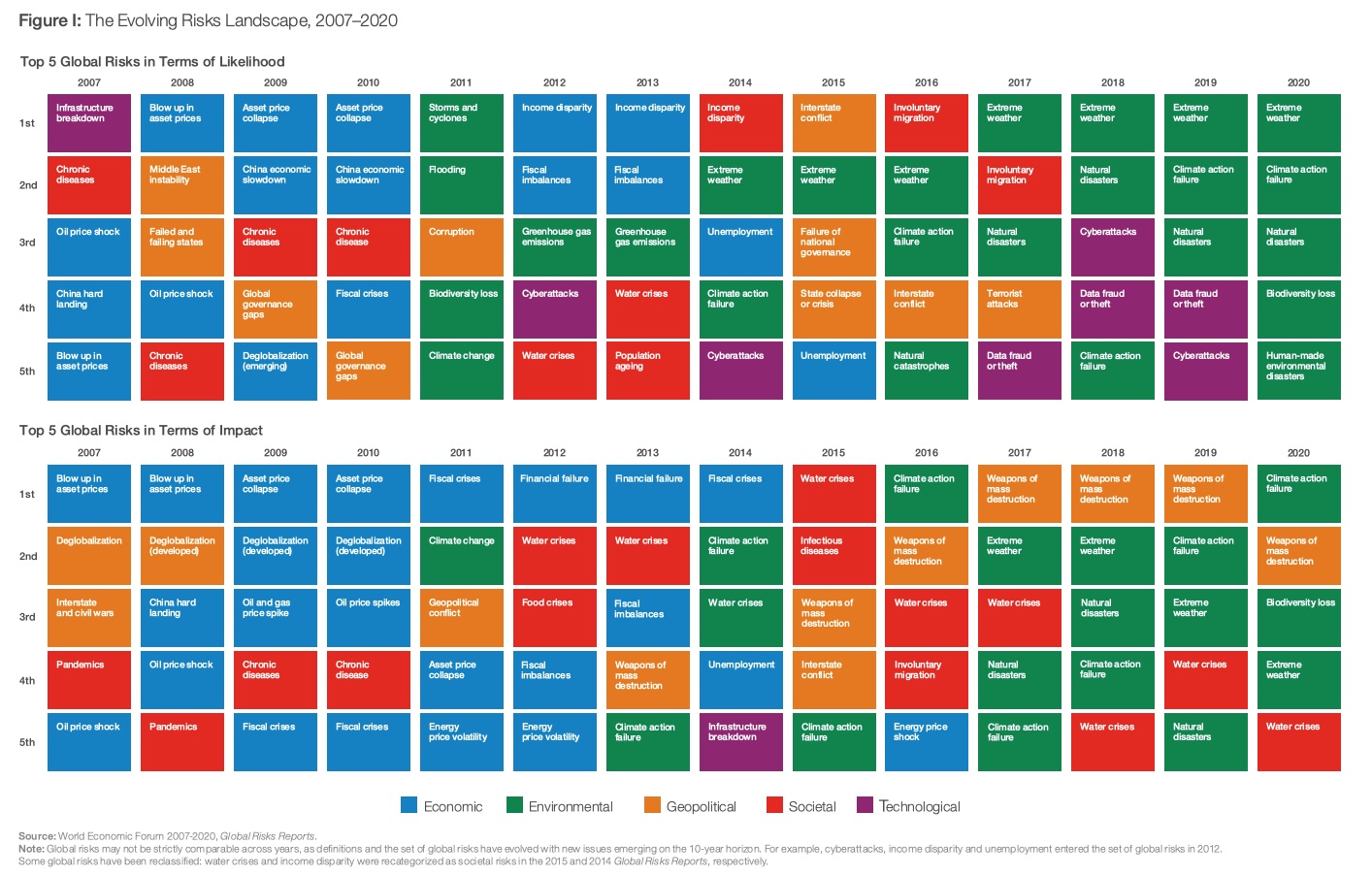According to the World Economic Forum (WEF) in the latest edition of The Global Risks Report 2020 these are the five global risks that we should watch out for in 2020:
- Instability in economy and social cohesion
- Climate threats
- Accelerated Biodiversity Loss
- Digital Fragmentation
- New Pressures in Health Systems

The Fraying Fundamentals
According to WEF, what was once viewed as fundamentals to economic growth — low trade barriers, fiscal prudence and strong global investment— are quickly fraying with leaders over the world advancing nationalist policies. The global economy is expected to experience downward pressure due to macroeconomic fragility and financial inequalities.
In the background, we are also experiencing trade wars and major conflicts. On the whole, the outlook on our economy and society is pretty dark.
A Decade Left
With the neglect of the emission targets, climate change is gaining momentum and striking harder than we had projected. Last year we experienced a series of fires and natural disasters. In 2019 the extremity of the weather was unprecedented.
By the end of the century, global temperatures are expected to increase by as high as 3°C. While this may not sound too much, the global target is only 1.5 °C., a rise above which experts warned will lead to severe economic, social, and environmental consequences.
From our partners:
The state of the global climate is an emergency that must be addressed quickly since leaving it unchecked will lead to both near-term and long-term repercussions.
Biodiversity loss
According to WEF’s multistakeholder network, biodiversity loss is the second most impactful and third most likely risk for the upcoming decade. In comparison to the average over the past 10 million years, the current rate of extinction is magnitudes higher.
WEF notes that biodiversity loss will lead to the disruption of supply chains and the collapse of our food and health systems.
The problem of biodiversity loss and climate change are closely linked together. This is because extreme deviations in the weather patterns can greatly affect the capacity of animal and plant species to survive.
Wild Wide Web
According to WEF, more than half of the world population is online, a figure that is expected to only increase over time as new innovations pop up. Technology has changed the way we live drastically for the better with the benefits to the society and the economy that it can offer.
However, at the same time, WEF emphasized that the developments in technology are not trickling down evenly. The uneven distribution of development led to the rise of gaps in internet access. In conjunction, the accelerated development in technology has reached a pace that humans can barely keep up. A lot of cybersecurity risks arise along with the developments and we don’t have much in the manner of policy and infrastructure to retain our safety.
Health systems under new pressures
With all of the changes we are experiencing, another sector that is experiencing a huge blow is the health sector. The change in societal, environmental, demographic, and technological patterns are so drastic that they have the potential to topple down the well-established systems of health we have set-up in the previous decades.
While in the past, communicable diseases are of the utmost concern, non-communicable diseases such as heart disease and mental illness are becoming larger threats with the changes in lifestyle in the backdrop.
However, this doesn’t mean that communicable diseases are not to be worried about. The emergence of anti-vaccine sentiments and — on the flip side — drug resistance are increasing the difficulty of addressing worldwide pandemics such as HIV/AIDS.
A demand for urgency
All of these risks cited by WEF are not things that will impact us a few decades of centuries from now. These are threats that when left as they are, will affect us directly and harshly. While we still can, we should build resilience and combat these threats.













